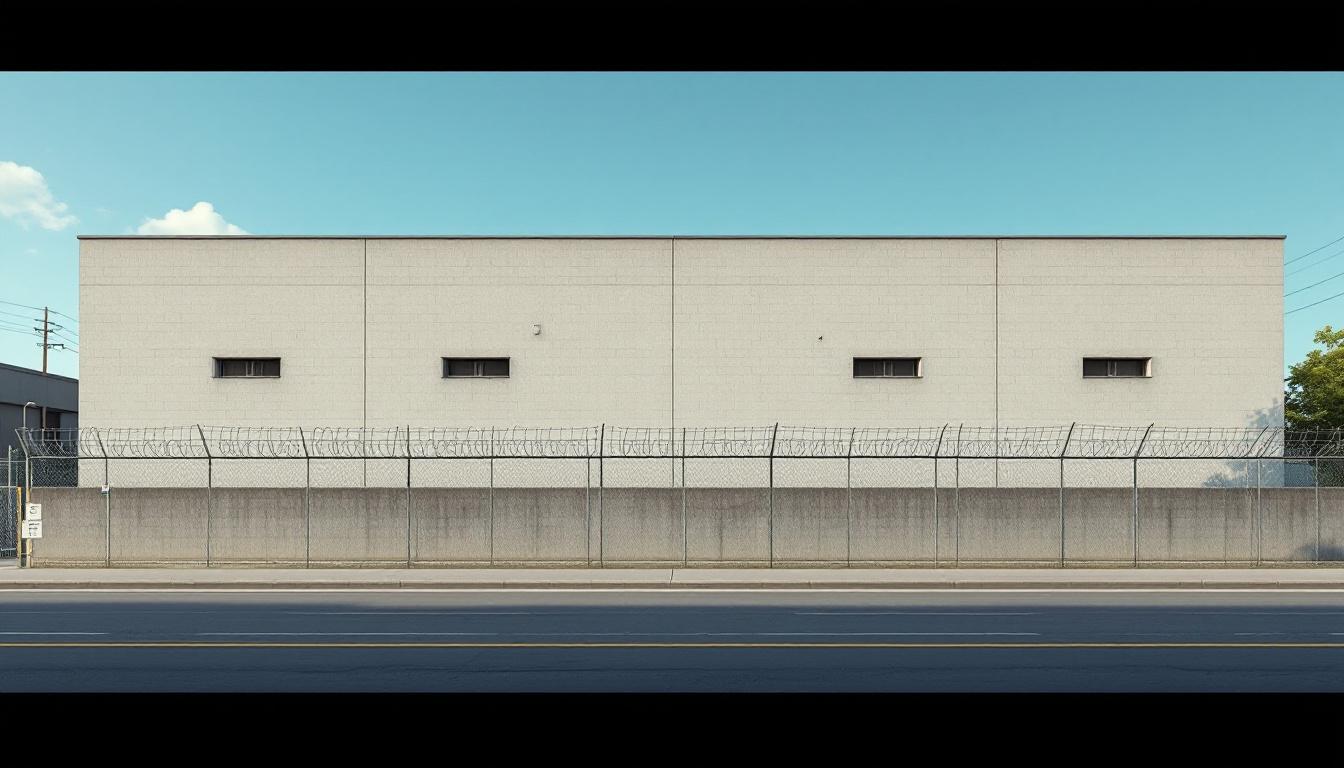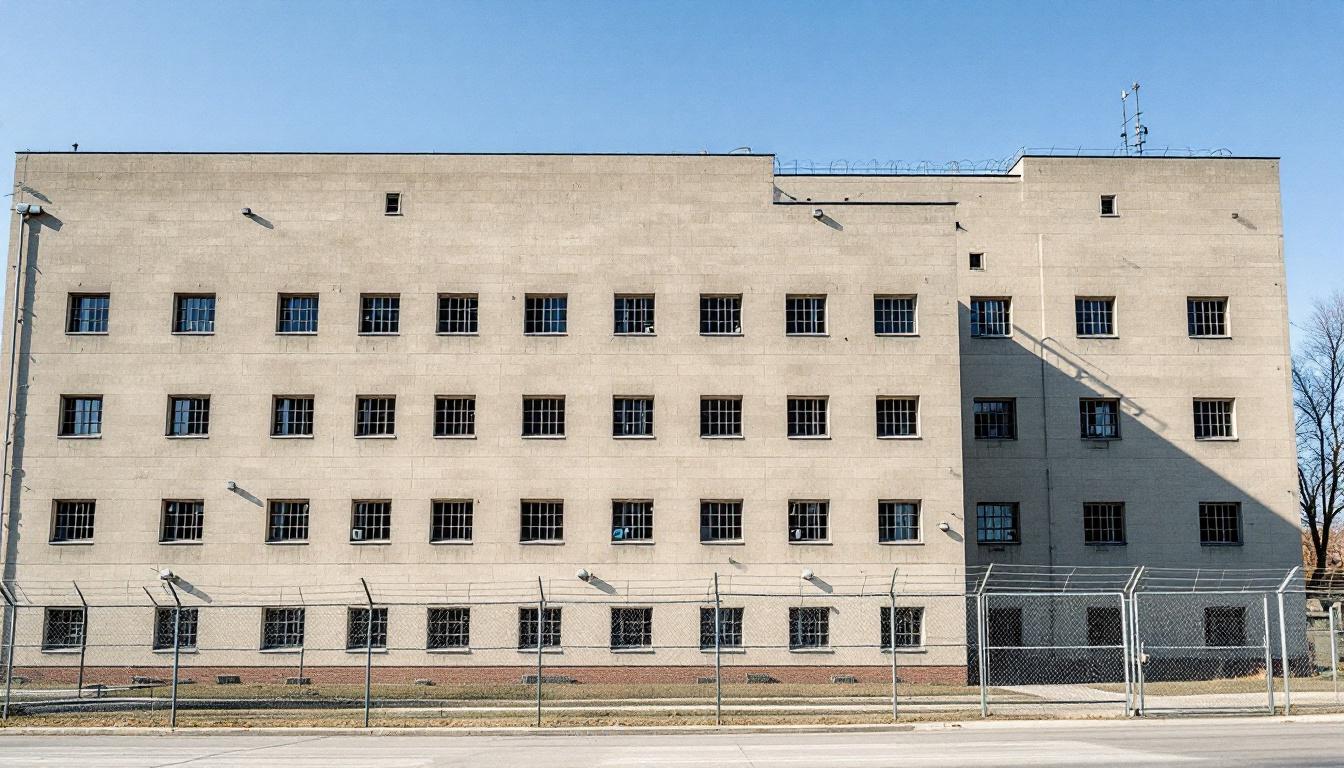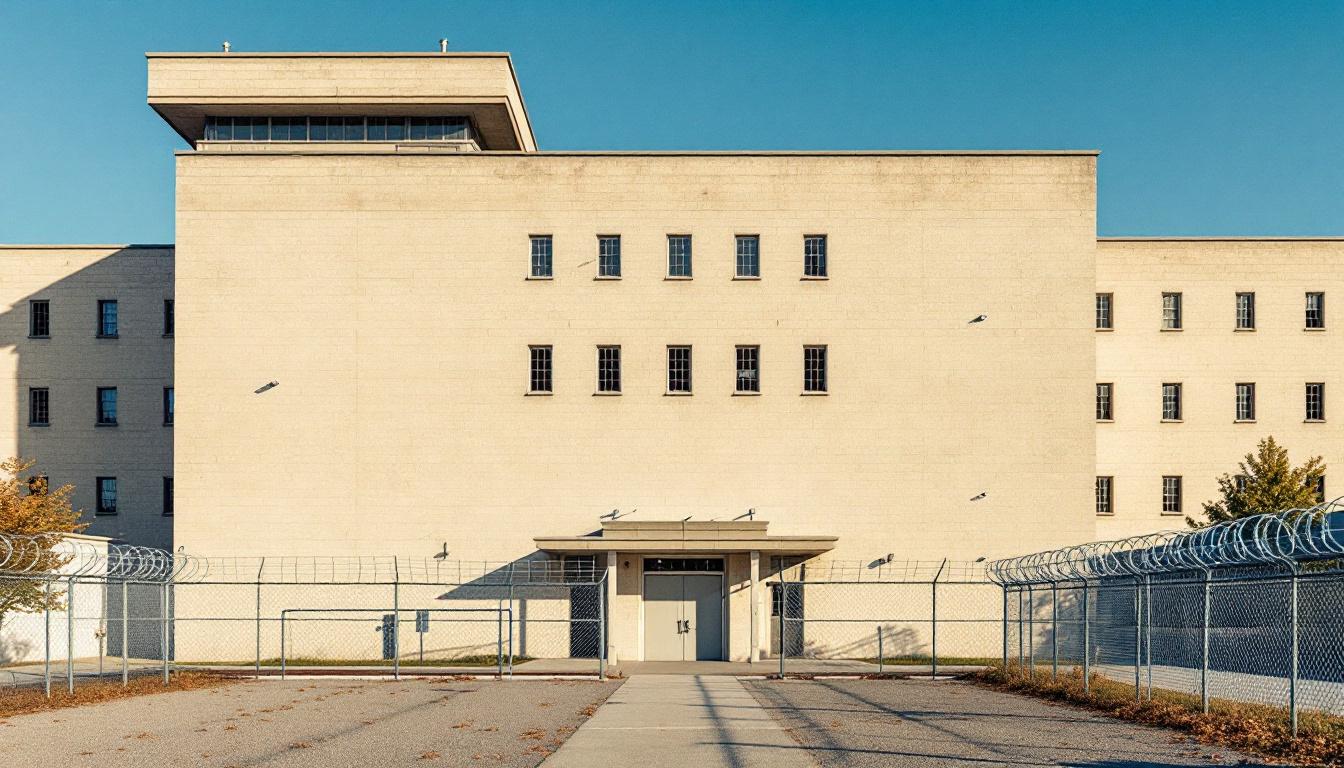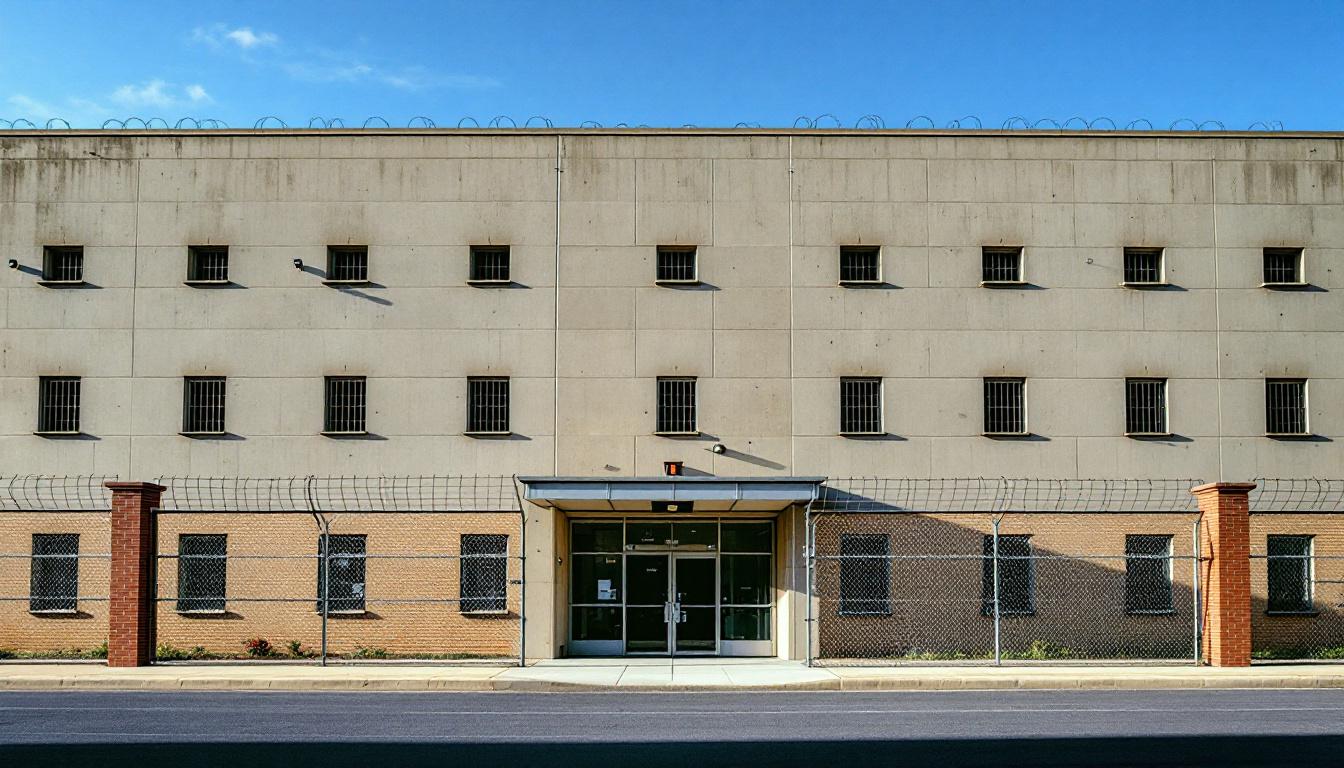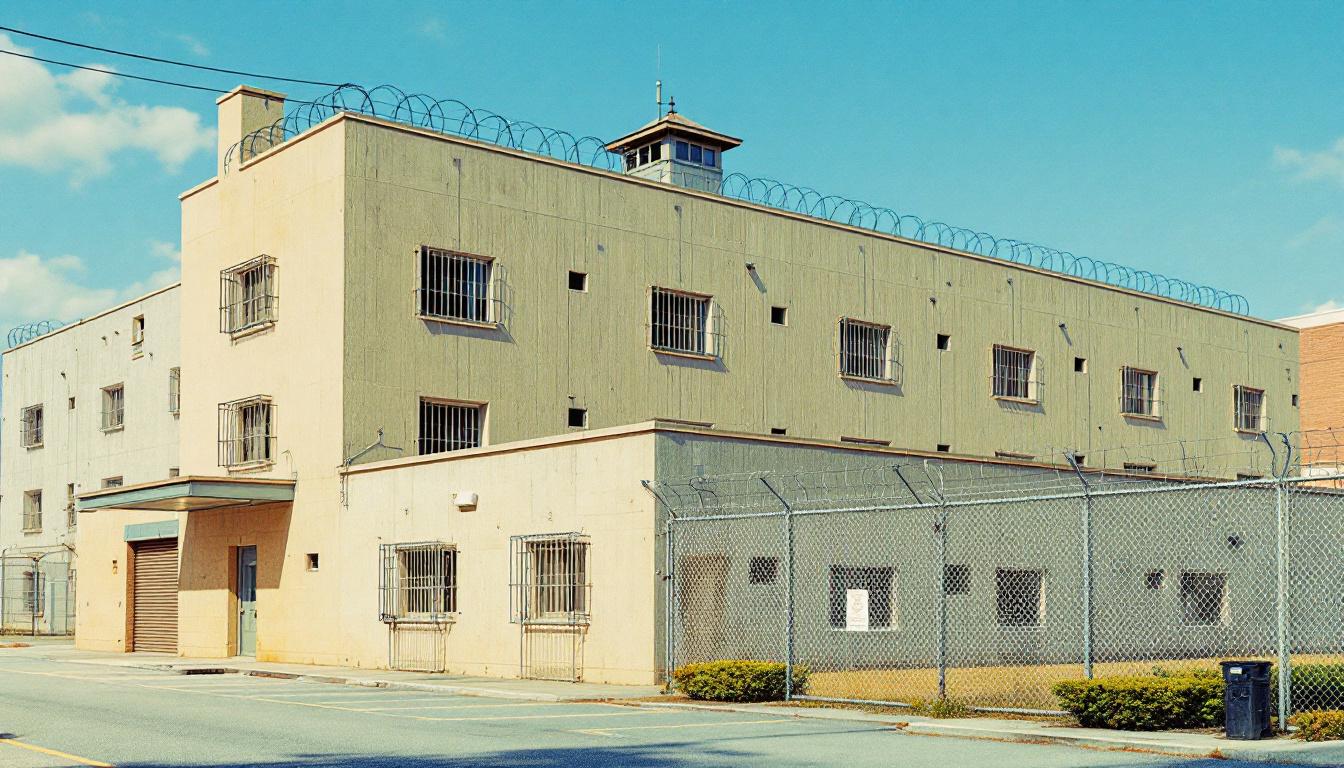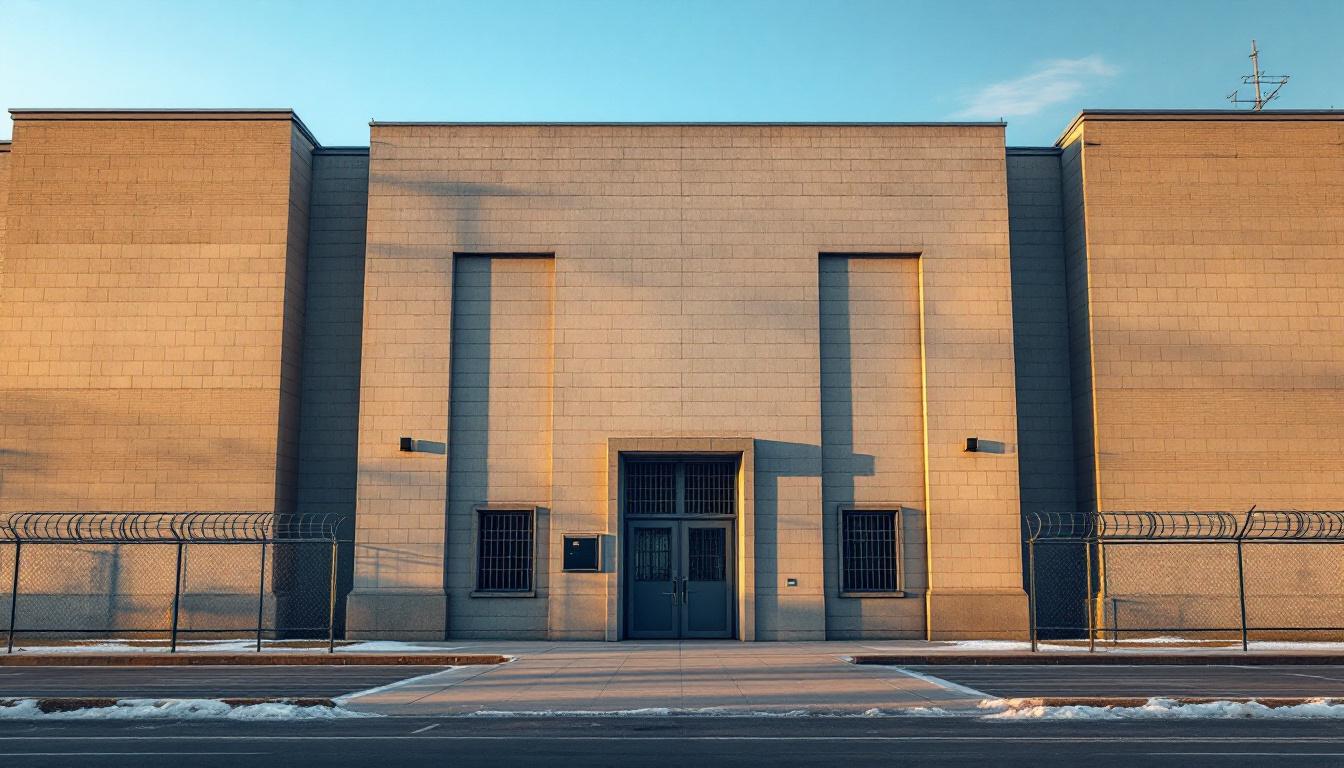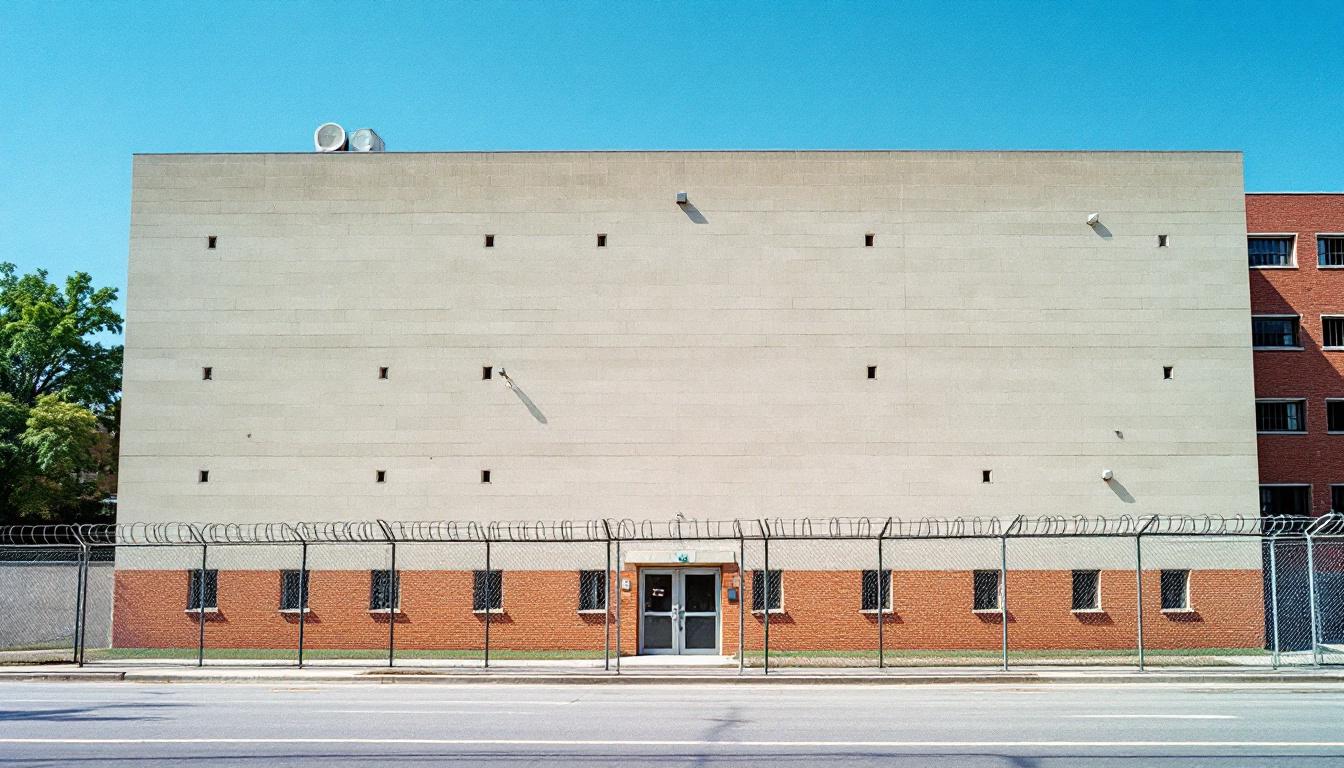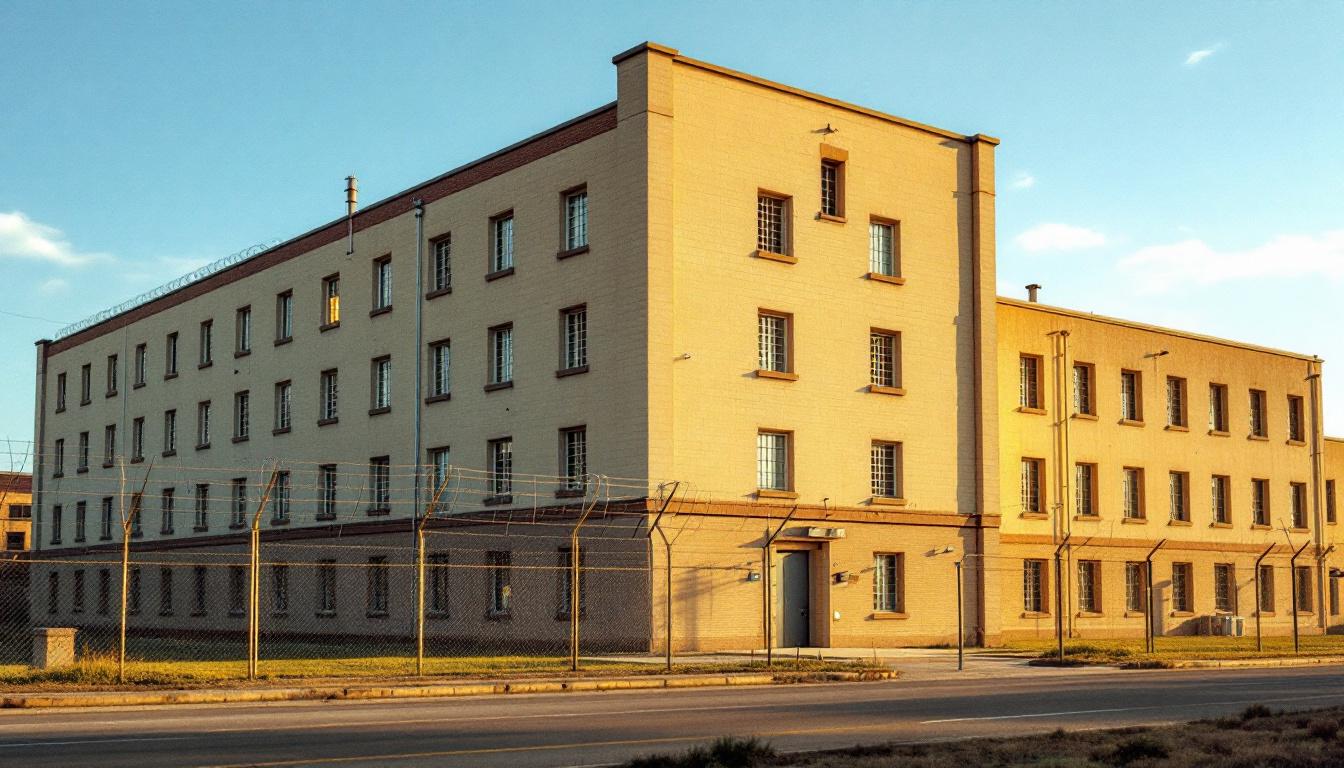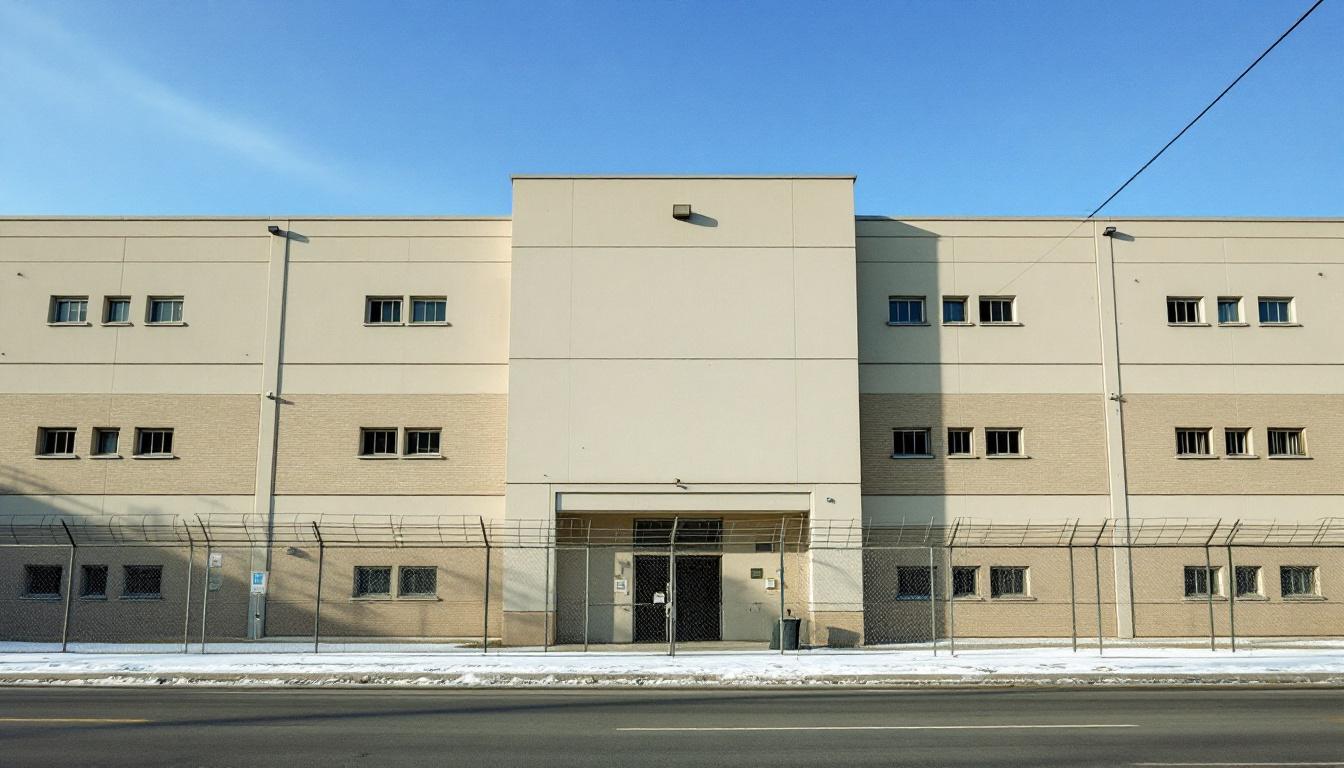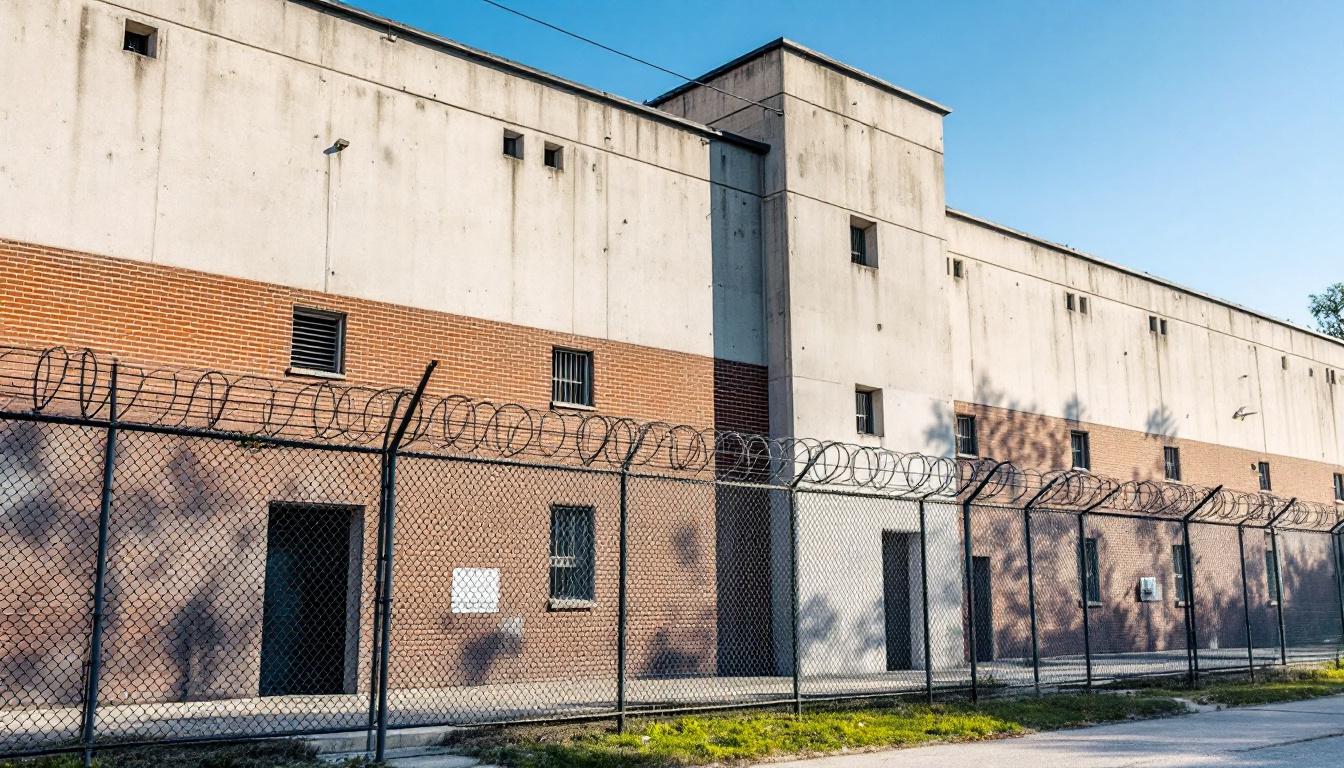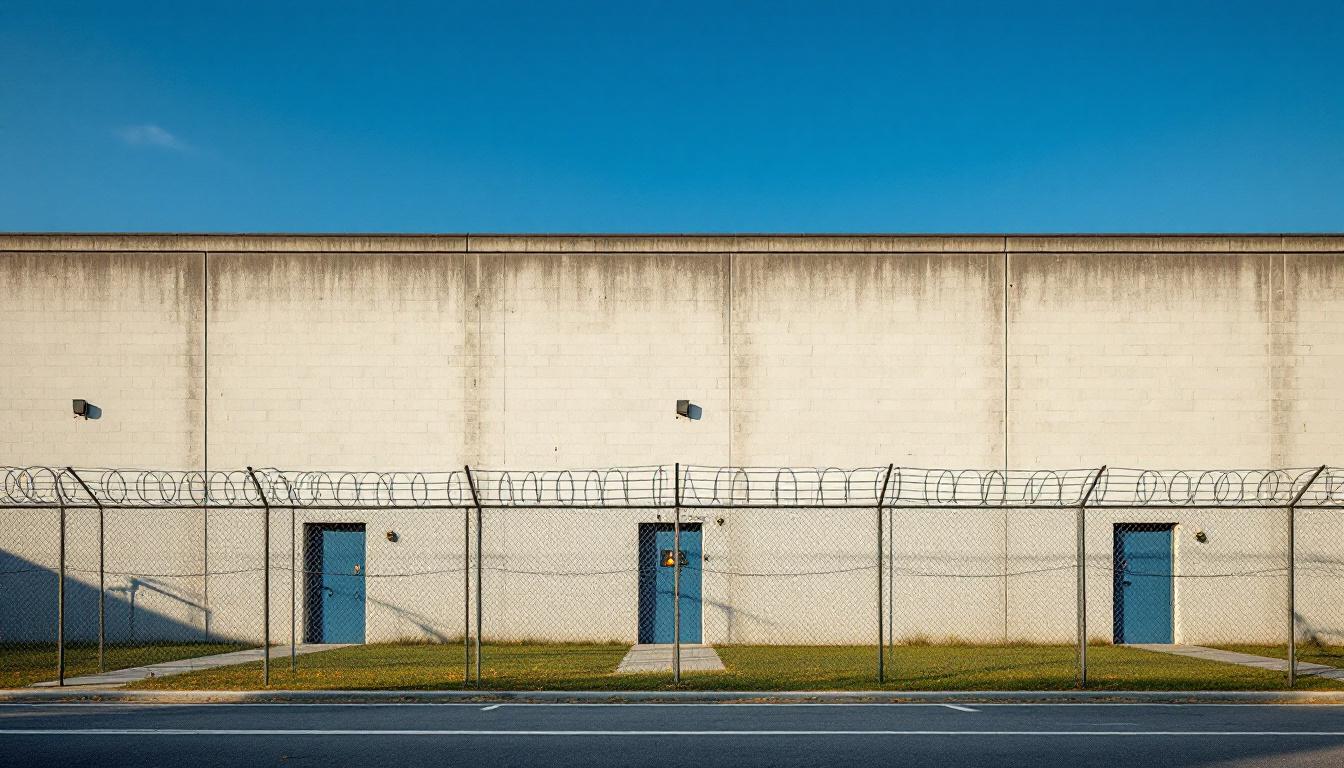
Quick Navigation
How to contact an inmate at Rensselaer County Sheriff
This comprehensive guide will walk you through how to connect with an inmate at Rensselaer County Sheriff. Follow the steps below to find an inmate and send letters and photos:
- Search for the inmate using our search tool below
- Create your account or log in to Penmate
- Write your message (up to 6,000 characters)
- Send instantly - inmates receive printed copies daily
Find an Inmate
Search for an inmate to start communicating today
Tip: You can search by first name, last name, or inmate ID number
To contact a person at Rensselaer County Sheriff start by searching for the person on the facility website. Perform a search by following these steps:
- Step 1: Enter their first name and last name into the search form and click "Search"
- Step 2: Locate their inmate record
- Step 3: Write down their Inmate ID and any housing information provided
Important! Be sure to enter the person's full name. Nicknames should not be used.
How to Send Messages to Inmates

You can use your phone or computer to send emails, letters, and photos to an inmate. Messages are sent electronically to inmate tablets or kiosks at the facility. If you would like to send a message, start by searching for an inmate at Rensselaer County Sheriff.
Sending Photos and Postcards

A great way to send love and support to a loved one at Rensselaer County Sheriff is to send photos and postcards. It only takes a few minutes to send photos from your phone and it makes a huge difference. You can also mail postcards with words of support and inspiration, or design your own postcard for special moments like birthdays and holidays.
Important! Be sure not to send any explicit photos or they may not be approved by the facility. You can also use a photo printing app like Penmate to make sure your photos are printed at the correct size (4x6 or 3x5) and are mailed according to the rules and regulations of Rensselaer County Sheriff.
Frequently asked questions about Rensselaer County Sheriff
-
How long does it take to deliver a message?
If you're sending an email message your letter is usually delivered within 24-48 hours. For messages sent via mail you should expect delivery within 3-7 days. All messages will need be approved by Rensselaer County Sheriff.
-
How much does it cost to send a message to Rensselaer County Sheriff?
You can send a message free using your phone or mail a message via USPS for the price of a $0.60 stamp and envelope. You can also purchase credits or e-stamps from services starting at $1.99.
-
What services can I use to contact an inmate at Rensselaer County Sheriff?
Penmate
You can use Penmate to send letters and photos to an inmate from your phone. It's an easy way to stay in touch during your loved one's incarceration. Use the inmate locator to find an inmate's location and contact information, then you can send messages within a few minutes.
Securus messaging
Securus may be another option for communicating with an inmate at Rensselaer County Sheriff. You can create a friends and family account and purchase credits to send messages. All messages will be reviewed and must be approved by the facility.
JPay
Some county jails and state prisons may support sending messages with JPay. You must register an account with the system, find your loved one, and purchase stamps to send messages. For some locations you can also attach photos.
Smart Jail Mail
You may also check if Smart Jail Mail is available at Rensselaer County Sheriff. Smart Jail Mail is operated by Smart Communications and has contracted with some state and county jails. After purchasing credits, your messages and photos are sent to the facility, printed out, and then handed out to your loved one.
-
What is the mailing address of Rensselaer County Sheriff?
Mailing address:
Rensselaer County Sheriff
4000 Main St
Troy, NY 12180
Phone: (518) 270-5448 -
What are the visiting hours at Rensselaer County Sheriff?
Visiting hours at Rensselaer County Sheriff vary by housing unit and security level. Generally, visits are scheduled on weekends and holidays, with some facilities offering weekday visits. Contact the facility directly at (518) 270-5448 or check their website for the current visiting schedule. Visits typically last 30-60 minutes and must be scheduled in advance.
-
What items are prohibited when sending mail to Rensselaer County Sheriff?
Prohibited items typically include: cash, personal checks, stamps, stickers, glitter, glue, tape, staples, paperclips, polaroid photos, musical or blank greeting cards, hardcover books, magazines with staples, and any items containing metal or electronics. Only send letters on plain white paper with blue or black ink. Photos must be printed on regular photo paper (no Polaroids). Always check with Rensselaer County Sheriff for their specific mail policies.
-
How do I send money to an inmate at Rensselaer County Sheriff?
You can send money to an inmate at Rensselaer County Sheriff through several methods: 1) Online using JPay, Access Corrections, or the facility's approved vendor, 2) Money orders mailed directly to the facility with the inmate's name and ID number, 3) Kiosks located in the facility lobby, or 4) Over the phone using a credit or debit card. Fees vary by method, typically ranging from $2.95 to $11.95 per transaction.
-
Can I schedule a video visit with an inmate at Rensselaer County Sheriff?
Many facilities now offer video visitation as an alternative to in-person visits. At Rensselaer County Sheriff, video visits may be available through services like Penmate, Securus Video Connect, GTL, or ICSolutions. Video visits typically cost $10-20 for 20-30 minutes and must be scheduled in advance. You'll need a computer or smartphone with a camera and reliable internet connection. Contact the facility for their specific video visitation policies and approved vendors.
-
What identification do I need to visit an inmate at Rensselaer County Sheriff?
All visitors must present valid government-issued photo identification such as a driver's license, state ID, passport, or military ID. Minors must be accompanied by a parent or legal guardian who can provide the minor's birth certificate. Some facilities require visitors to be on the inmate's approved visitation list, which may require a background check. Contact Rensselaer County Sheriff for specific ID requirements and visitor approval procedures.
-
How can I find out an inmate's release date?
To find an inmate's release date at Rensselaer County Sheriff, you can: 1) Use the online inmate search tool if available, 2) Call the facility's records department, 3) Contact the inmate's case manager or counselor, or 4) Have the inmate provide this information during a call or visit. For privacy reasons, some facilities only release this information to immediate family members.
Facility Overview

About Rensselaer County Sheriff
Nestled in the historic city of Troy along the Hudson River, the Rensselaer County Jail serves as a vital component of New York’s broader correctional infrastructure, addressing the detention and rehabilitation needs of residents throughout Rensselaer County. This facility operates within the framework of New York’s county-level correctional system, typically housing individuals awaiting trial, serving shorter sentences, or participating in various court-ordered programs. The jail’s location in Troy positions it strategically within the Capital Region, allowing it to coordinate effectively with local courts, law enforcement agencies, and community organizations that support the criminal justice process.
The facility generally emphasizes a balanced approach to incarceration that combines secure detention with opportunities for personal development and preparation for community reintegration. Residents may have access to educational programming, substance abuse counseling, and vocational training opportunities designed to address underlying issues that often contribute to criminal behavior. These services typically align with New York State’s broader correctional philosophy, which recognizes rehabilitation as an essential component of effective corrections. The jail often works to maintain connections between residents and their families through visitation programs and communication services, understanding that strong community ties can significantly impact successful reentry outcomes.
As part of the mid-Atlantic region’s correctional landscape, Rensselaer County Jail operates within established standards for county-level facilities while adapting its services to meet the specific needs of the local population. The facility’s role extends beyond simple detention to include coordination with various county departments, social services, and healthcare providers to ensure comprehensive care for residents during their incarceration and support for their eventual return to the community.
Programs & Services
Educational services form the cornerstone of rehabilitation efforts at Rensselaer County Jail, where residents can access comprehensive learning opportunities designed to address diverse academic needs. The facility typically maintains a structured approach to personal development, recognizing that meaningful change often begins with addressing educational gaps and building essential life skills. These initiatives may deliver targeted support through individualized assessments, ensuring that each resident receives appropriate academic guidance regardless of their starting point.
The educational framework often includes both general education services and specialized support for residents with learning differences. Special education services may be available to address specific learning challenges, while traditional academic programming typically covers essential subjects like literacy, numeracy, and basic computer skills. Furthermore, these educational initiatives often extend beyond classroom learning to include practical life skills training that residents can apply upon reentry into their communities.
Mental health support represents another critical component of the facility’s therapeutic approach, with initiatives that may deliver counseling services and psychological assessment. Therapeutic programs typically focus on helping residents develop coping strategies and address underlying issues that may have contributed to their incarceration. Furthermore, conflict resolution initiatives often provide residents with tools to manage interpersonal challenges more effectively, teaching communication skills and anger management techniques that can prove valuable both during incarceration and after release.
Daily Life & Visitation
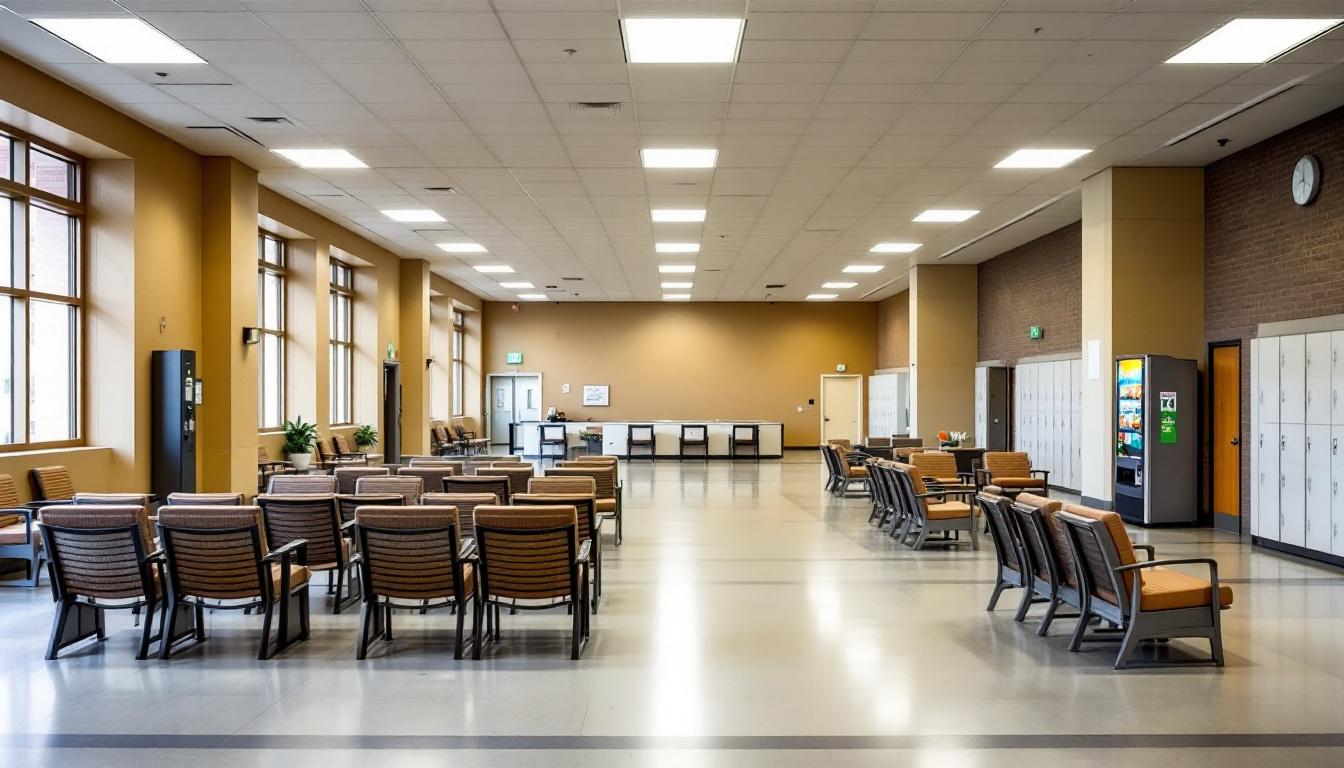
Structure consistently delivers stability through carefully organized daily routines that help residents maintain predictability during their stay. Today begins early with wake-up calls, followed by scheduled meal times that bring residents together in designated dining areas. Count times occur regularly throughout each day, ensuring accountability while providing natural transition points between activities. Generally, residents can expect a rhythm that includes work assignments, recreational periods, and personal time for correspondence or reading.
Living accommodations typically feature dormitory-style housing or individual cells, depending on classification levels and available space. Residents usually share common areas where they may watch television, play board games, or engage in conversation during designated hours. Personal property allowances are generally limited but may include basic hygiene items, approved clothing, and a small number of personal letters or photographs. Furthermore, commissary services often provide opportunities to purchase additional snacks, hygiene products, and writing materials to supplement basic provisions.
Programming schedules deliver educational opportunities, religious services, and counseling sessions that help residents maintain connections to personal growth and community support. Although recreational time may be limited, residents typically have access to exercise periods, library materials, and organized activities. Visitation policies generally allow family members to maintain contact through scheduled visits, while phone privileges and mail correspondence provide additional communication options. Work assignments within the facility often include kitchen duties, cleaning responsibilities, and maintenance tasks that contribute to daily operations while providing structure and purpose to residents’ time.
Ready to Connect?
Start communicating with your loved one today
Search for an Inmate
